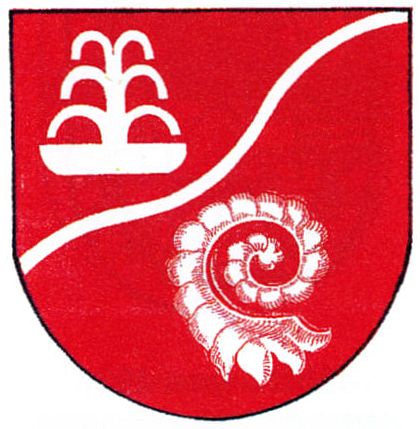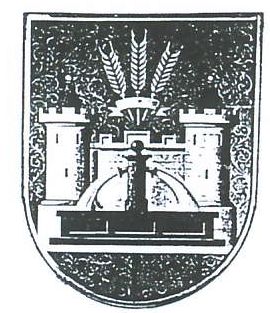Langensalza: Difference between revisions
Jump to navigation
Jump to search
Knorrepoes (talk | contribs) m (Text replacement - "/Arms of " to "/Arms (crest) of ") |
Knorrepoes (talk | contribs) m (Text replacement - "{{media}}" to " {{de1}} {{media1}}") |
||
| Line 28: | Line 28: | ||
The two towers symbolise the cities of Bad Langensalza and Bad Tennstedt. The fountain refers to the sulphurous springs in both cities, the wheatears symbolise agriculture. | The two towers symbolise the cities of Bad Langensalza and Bad Tennstedt. The fountain refers to the sulphurous springs in both cities, the wheatears symbolise agriculture. | ||
{{ | |||
{{de1}} | |||
{{media1}} | |||
[[Civic Heraldry Literature - Germany|'''Literature''']]: Ulle, 1993. | [[Civic Heraldry Literature - Germany|'''Literature''']]: Ulle, 1993. | ||
Revision as of 12:20, 26 December 2022
This page is part of the German heraldry portal Deutsche Wappensammlung |
Heraldry of the World |
|
German heraldry:
|
Selected collector's items from Germany:
|
LANGENSALZA (LSZ)
State : Thüringen
Incorporated into: 1994 Unstrut-Hainich Kreis
| German | |
| English | No blazon/translation known. Please click here to send your (heraldic !) blazon or translation |
Origin/meaning
The arms were officially granted on March 23, 1992.
The upper part shows a fountain for the sulphur springs in the district. The wavy bend symbolises the Unstrut river. The ram's horn in the base is taken from the arms of the Lords of Salza, known since 1261.
The previous arms were adopted on December 7, 1948:
The two towers symbolise the cities of Bad Langensalza and Bad Tennstedt. The fountain refers to the sulphurous springs in both cities, the wheatears symbolise agriculture.
Literature: Ulle, 1993.



